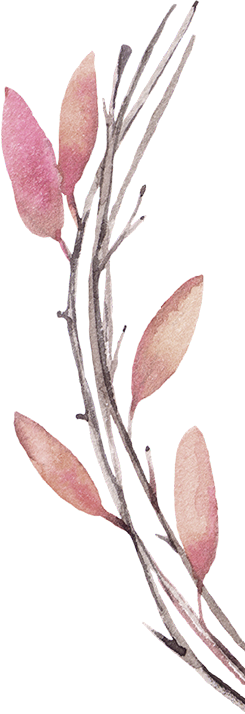The Secret “Off” Switch to Stop Your Anxiety Now

Contents
When your anxiety turns on, you want anything that will stop your anxiety now
Hey lovely, we have all been there. When that overwhelming wave of anxiety hits, you just want it gone. Like, yesterday. Maybe it seems like you’ve tried absolutely everything already-meditation, breathing, venting to your besties. But there’s one thing you probably haven’t tried: changing your expectations.
I can’t tell you exactly which expectations are causing your specific anxiety, you, but I can tell you how expectations trigger the cascade of brain chemicals that we call anxiety. It is wild how our brains work!
How does changing your expectations be the secret to stop anxiety now?
It’s always easier to see how this works in someone else, isn’t it? So, let’s use a fun example. Imagine that I want a pony for my birthday. I am expecting it. When my expectations are disappointed, my brain releases cortisol. This chemical is the brain’s danger alert. It feels terrible because that gets a body to focus attention on eliminating the threat.
Our brain is literally designed to respond to threats of all kinds, ladies. The obvious kind of threat is a predator, but a more subtle threat is investing effort in a lost cause. For example, a lion will starve to death if it keeps running after gazelles that have gotten away. Nature is harsh but smart.
We would love to know-have you ever chased a “gazelle” (or a bad relationship/job) way too long? Tell us in the comments below if you’ve ever felt that cortisol spike when things didn’t go your way!
The lion’s cortisol turns on when their chase fails and the bad feeling alerts them to find a new target. The brain we’ve inherited makes careful decisions about where to invest its energy. If you run after something and dont get it, your brain releases cortisol to alter your course. It feels bad, but our brain is not designed to feel good; it’s designed to promote survival.
But I don’t expect a pony, you may say. True, you, but you have expectations that trigger your cortisol. You can find them if you really look. You won’t find them in your conscious verbal mind, but in the neural pathways your brain built from past experience. Our neurons connect when we have a strong surge of emotion. This creates pathways that turn on the emotion in similar future circumstances.
The electricity in your brain flows like water in a storm, finding the paths of least resistance.
Your electricity tends to flow into the paths you built in youth because they have developed into superhighways. This flow of electricity through old pathways is what makes something feel like a big deal without your conscious verbal brain knowing why. It’s not your fault, love, it’s just biology.
For example, imagine I have another birthday coming up and I start expecting a pony again. Last year’s disappointment built a cortisol pathway in my brain, so I should have a bad feeling about the pony thing. But somewhere in my past, I created an even bigger pathway that expects all my frustrations to be fixed by the appearance of a pony. Somehow I connected the pony to my happy chemicals (dopamine, serotonin and oxytocin), so I get a good feeling just thinking about it.
I also get a bad feeling thinking about it. What a conundrum! My brain’s natural quest for good feelings activates a pathway that turns on my cortisol!
My cortisol pathway will grow if the pony fails to appear again this year. Cortisol makes you feels like your survival is threatened, even when you consciously know that the lack of a pony does not threaten your survival. I will end up with a lot of cortisol unless I build a new pathway to my happy chemicals.
Why does a brain designed for survival build quirky expectations about ponies? Or about that text back from him? Or that promotion?
Our happy chemicals are designed to turn on when we meet a need and then they turn off. So in order to stimulate our happy chemicals and stop anxiety now, we have to constantly take steps toward meeting our needs.
We evolved in a world where you had to constantly forage for food to survive. Finding resources turned on the happy chemicals, but they quickly habituate to old rewards, so “new and improved” is what it takes to get them flowing. In a world where your basic physical needs are routinely met, your happy chemicals respond most when you meet social needs.
Anything that met social needs when you were a kid built superhighways in your brain that create your present expectations about what will feel good. Yikes! No wonder we expect ponies and suffer cortisol spurts.
When you know that anxiety is caused by old expectations, you can relieve it by building new expectations.
You can stop your anxiety now, by giving your electricity a new place to flow. Of course, you’ll still end up with disappointment sometimes because the social world is unpredictable. But disappointment feels less threatening when you know it’s just electricity flowing into an old pathway. You are stronger than your pathways, ladies!
Let’s Chat, Beautiful!
We want to hear your story. Have you identified an expectation that keeps triggering your anxiety? Share your experience in the comments below – your insight might be exactly what another woman needs to read today. Let’s support each other in rewiring our brains!
Frequently Asked Questions
How can I stop anxiety immediately?
To stop anxiety now, try to identify the specific expectation that is being threatened. Understanding that your anxiety is often a chemical response (cortisol) to an unmet expectation can help you detach from the feeling and redirect your mental energy.
Why do expectations cause anxiety?
Expectations create neural pathways in the brain. When an expectation isn't met, the brain releases cortisol, a stress chemical designed to alert you to a threat. This survival mechanism feels like anxiety.
Can I retrain my brain to feel less anxious?
Yes! By consciously building new expectations and finding new ways to meet your needs, you can create new neural pathways. This helps stimulate happy chemicals like dopamine and serotonin instead of constantly triggering cortisol.









Gina:
“our brain is not designed to feel good; it’s designed to promote survival.” Whoa. Huge aha moment for someone who has suffered from not only anxiety but someone who is an addict in recovery. Loved this article and will be sharing on my Facebook!